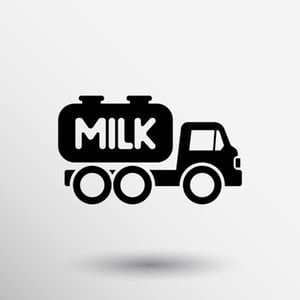The U.S. has one of the safest food supplies in the world, but foodborne illness still sickens 76 million people, causes 325,000 hospitalizations, and results in 5,000 deaths in the U.S. each year, according to the CDC.
 If you own a food transporatation business, then you need to understand government regulations that can affect your trucking insurance needs and that you acquire proper truck insurance to cover your unique needs.
If you own a food transporatation business, then you need to understand government regulations that can affect your trucking insurance needs and that you acquire proper truck insurance to cover your unique needs.
In 2011, the FDA Food Safety Modernization Act (FSMA), the most far-reaching reform of our food safety laws in seventy years, was signed into law. The goal of FSMA is to prevent contamination – as opposed to responding to contamination - and it gives the Food and Drug Administration (FDA) new authority to regulate the way food is grown, harvested, processed, and transported.
If you are a food transportation company with revenues over $500,000, the most important thing you need to understand about FSMA is the Sanitary Food Transport Act (SFTA), which took effect on March 31, 2017.
New Requirements for Trucking Company Vehicles
SFTA established requirements for trucking company vehicles, equipment, operations, records and training for shippers, loaders, motor and rail carriers, and receivers involved in transporting human and animal food. The focus is on the use of sanitary and temperature control practices.
SFTA defines requirements around the following:
- Vehicles and Transportation Equipment – The vehicles used to transport food must be designed and maintained to ensure that they don’t cause the food to become contaminated. For example, vehicles must be kept in a sanitary condition, and handwashing facilities must be available at loading/unloading stations.
- Transportation Operations – Every measure must be taken to ensure that food is not contaminated in transit. For example, storage compartments must be pre-cooled and have a temperature monitoring device when transporting refrigerated items and measures need to be made to ensure that ready-to-eat food doesn’t touch raw food and that non-food items (in the current or a previous load) don’t contaminate food.
- Training – Carrier personnel need to be trained in sanitary transportation practices, and that training needs to be documented.
- Records – A log of temperature conditions throughout the transportation must be kept for at least 12 months.
Liability Questions for Trucking Firms
FSMA and SFTA have raised many liability questions. For example, what happens if a receiver rejects all or part of a motor carrier’s food shipment because of an FSMA violation even if the product did not sustain damage? Who is responsible for the disposal of the shipment? Who is responsible for a mechanical breakdown that results in an FSMA violation?
Protect Your Trucking Business With The Right Insurance - Call Today
 FSMA is just one government-imposed regulation that can affect your business, so it’s important that you have the right type of trucking insurance to cover your unique needs.
FSMA is just one government-imposed regulation that can affect your business, so it’s important that you have the right type of trucking insurance to cover your unique needs.
For a review of your insurance policy and to get the best price on quality trucking insurance for your business, contact American Insuring Group online or call us at (800) 947-1270 or (610) 775-3848.







